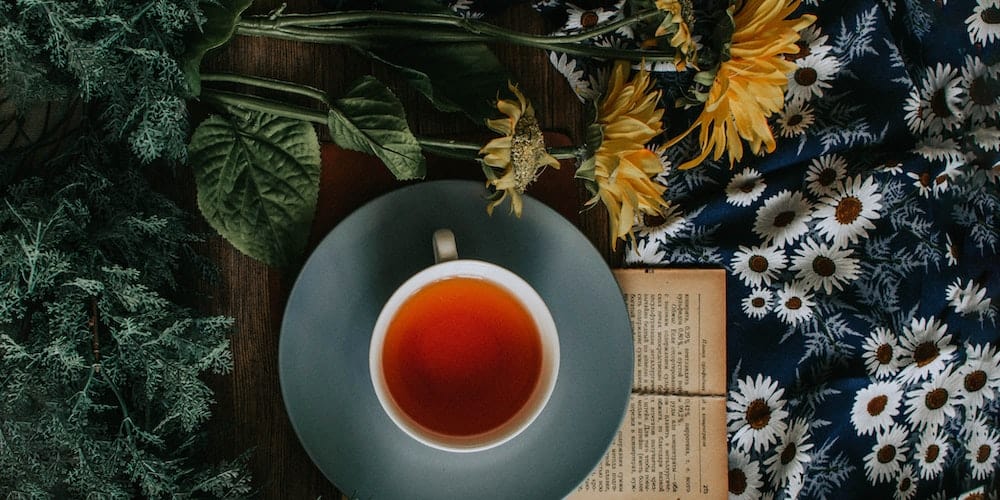Several factors can disturb sleep: stress, anxiety, a heavy dinner, consuming stimulating substances like coffee and tea, drinking alcohol late in the day, and exercising late at night.
Fortunately, plants can relieve certain sleep disorders thanks to their active compounds. This is the case of the amino acid 5-HTP found in the griffonia or the apigenin from chamomile.
Which plants should you favor to sleep better? Here is our selection of the 7 plants most effective for regaining restorative sleep, to be taken in capsules or as an infusion.
Genuine natural sleep aids! Check after the list to discover the physiological aspects related to sleep and the role of melatonin.
Also read Choosing the Best Melatonin
Note: Plants in the form of dietary supplements can be an alternative to herbal tea for people who tend to wake up in the middle of the night to relieve their bladder.
1. Griffonia

Griffonia is part of the legume family, which also includes soy. It is a plant that grows mainly in the forests and savannas of certain African countries such as Togo. It contains the amino acid 5-HTP, which increases melatonin production and helps reduce certain sleep disorders. This article highlights the action of this amino acid in the treatment of insomnia.
How to consume it : products made from its seeds are preferred to get the most benefit from its properties. It is available as tablets or as a powder (the latter being less concentrated in 5-HTP). The powder can be added to liquids such as fruit juice.
2. Ashwagandha
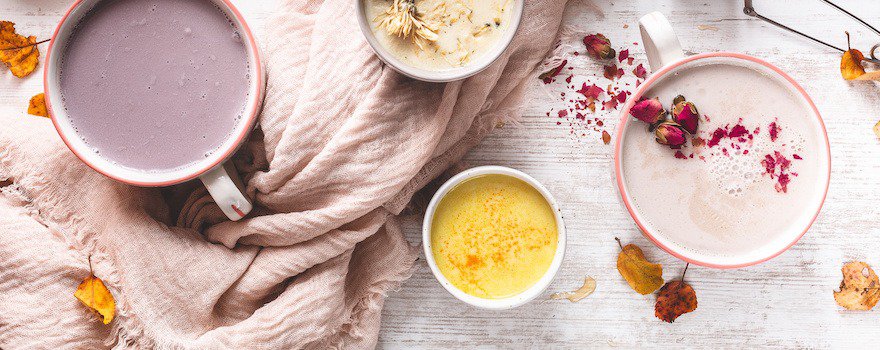
Ashwagandha belongs to the same family as goji berries. It is described as an adaptogenic plant, meaning it can help our body adapt to physical and physiological stressors.
This study, conducted on chronically stressed individuals, shows its effect on the reduction in insomnia. Two alkaloids (a type of molecule) called somniferine and somnine are involved in its action.
How to consume it : its powder can be incorporated into sweet preparations such as creams or cakes. Moon milk is a recipe that highlights its soporific properties. You can also find capsules or dried ashwagandha roots to use in a decoction.
3. Valerian
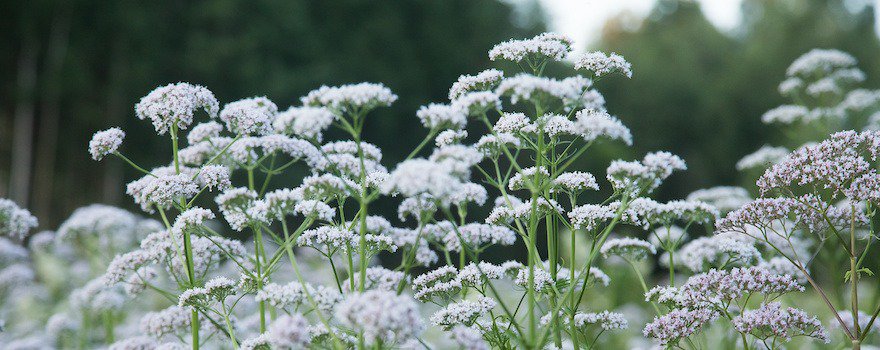
Valerian is a plant native to Europe and Asia. It is among the plants that promote falling asleep by calming nervous activity. The synergy of its compounds may make sleep deeper and more restorative. This study conducted on patients suffering from insomnia demonstrates its beneficial effect on sleep.
How to take it: it is available in the form of tablets or capsules. It is recommended to choose organic. It is also available as a powder; it can be prepared as an herbal tea or dissolved in water.
4. Passionflower
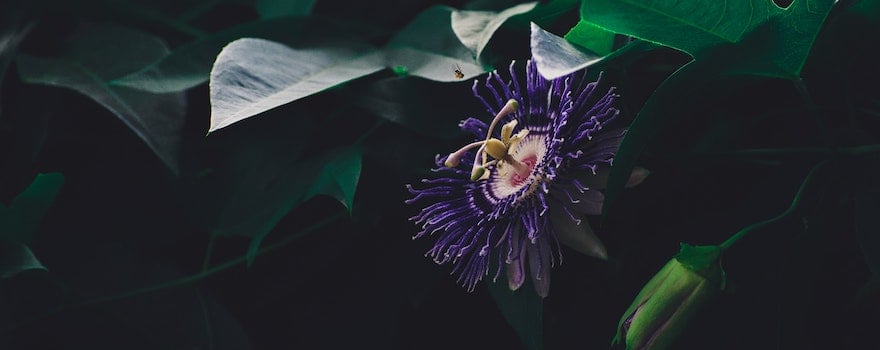
Passionflower, also called the passion flower, has splendid bluish flowers topped with a pretty crown! It comes from South America. This study conducted on animals suggests its action to promote falling asleep and increase sleep duration.
Human studies are awaited to confirm these preliminary conclusions. One of its compounds, called maltol, is thought to be responsible for its sedative action.
How to take it: it can be consumed as an herbal tea. It is also available in capsule form.
5. Lemon balm
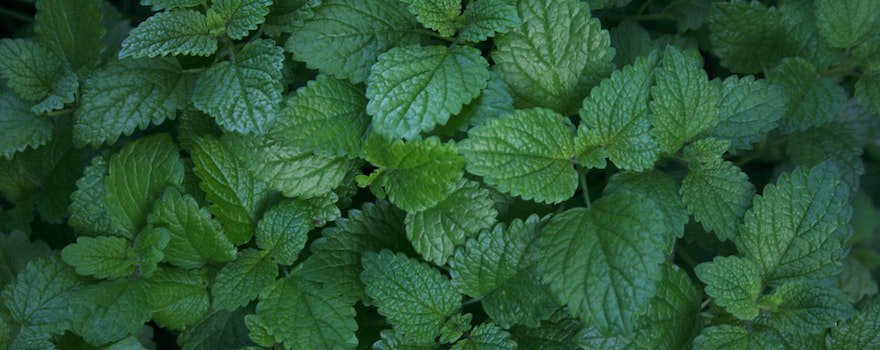
Lemon balm is also called lemon herb because of its characteristic flavor. It originally grows in the Mediterranean basin. It has been used since ancient Greece for its medicinal properties. This study conducted on mice indicates the potential sedative effect of lemon balm. Its compounds citronellal and citral may act on muscle relaxation and falling asleep.
How to consume it: it can be prepared as a herbal tea: by decoction or infusion. It is also available in tablet form or as an essential oil.
6. Tribulus
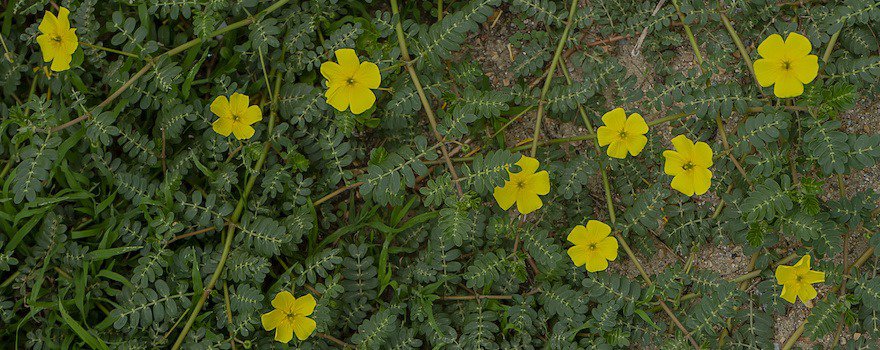
Le tribulus, also called Maltese cross, is a perennial plant that can grow in many regions. It has been used as a medicinal plant for millennia. It is also an adaptogenic plant. It helps balance the nervous system and improves sleep quality.
How to take it: tribulus is available in tablets or capsule form. In powder form you can mix it into a drink or a dessert such as applesauce.
7. German chamomile
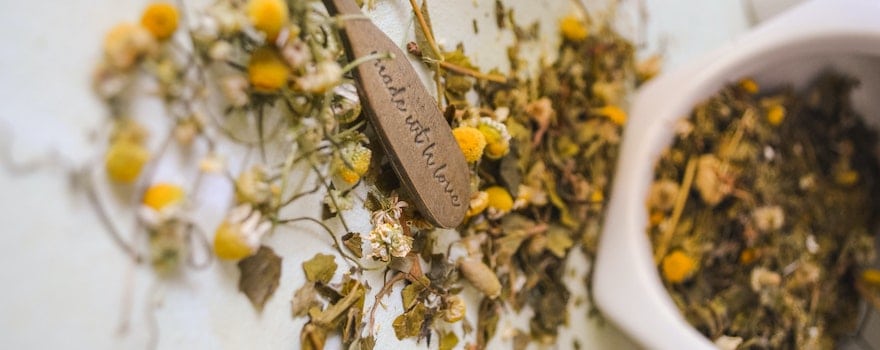
German chamomile is well known for helping with falling asleep. It’s a fairly popular herbal tea that is said to help you fall into Morpheus’s arms more easily. Its soporific properties are thought to be due to one of its active compounds called apigenin.
How to consume it: it is very easy to find as an infusion. You can even find whole flowers to steep in some herbal shops. A nice way to pair its gentle flavor with an attractive visual in homemade herbal tea.
Herbal medicine to support sleep
A brief physiological overview of sleep
We spend on average nearly a third of our lives sleeping! Many scientists study sleep and try to decipher its mechanisms and, in particular, its functions. It is credited with a role in our learning and memory abilities. The relationship between sleep and the functioning of the immune system has also been the subject of several studies.
Our sleep is governed by the circadian rhythm. It is an internal clock that operates in 24-hour cycles. It determines the alternation between periods of wakefulness and sleep.
When night falls, our body secretes melatonin. It is a hormone produced from serotonin (the “well-being hormone”) that helps with falling asleep.
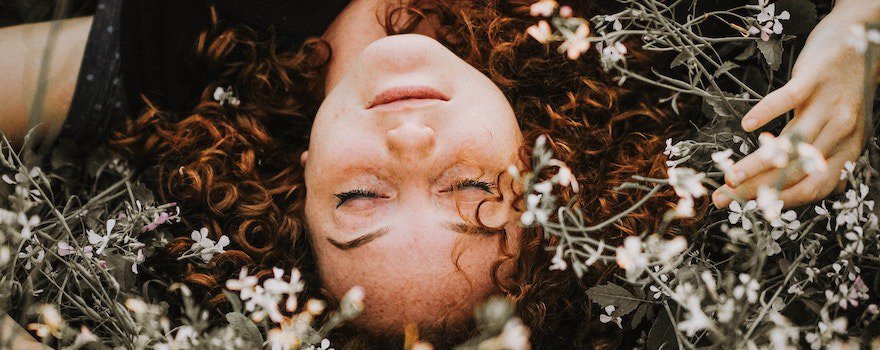
The blue light from screens can disrupt the sleep cycle. Other factors can affect sleep quality, such as poor digestion, noise, or irregular work hours.
Also read How to sleep better thanks to diet?
Herbal medicine and sleep
For millennia, the herbal medicine has used plants to treat various ailments within a therapeutic approach. WHO recognizes it as traditional medicine.
It is the active compounds of plants that help relieve a multitude of ailments including sleep disorders. This is the case, for example, of chamomile’s apigenin. It is a compound of the plant (a flavonoid), which by binding to specific receptors in the brain may have a sedative effect.
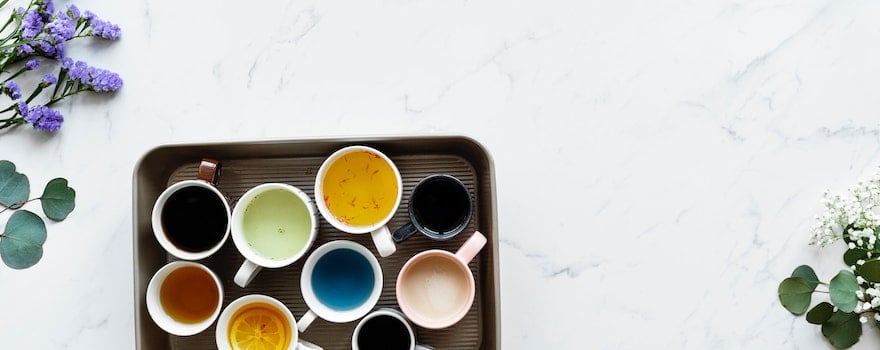
Precaution: consult a specialist (doctor, pharmacist, herbalist) to check that you have no contraindications to consuming plants and that there is no risk of drug interactions.
If you have recurrent insomnia or more serious sleep disorders, talk to your doctor.


